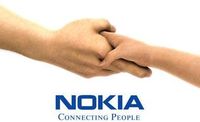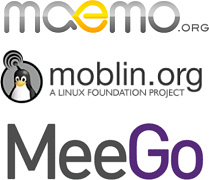
Nokia tried to do just that. It thought its Symbian Real Time Operating System (RTOS) could be tweaked and remain competitive indefinitely. That's not the way computing works. Computing always moves toward higher levels of complexity, on every platform, as the cost of complexity is constantly moving downward.
The question now is whether Nokia is still ignoring the mainstream by linking up with Microsoft. The move became inevitable as former Microsoft executive Stephen Elop was brought in as Nokia CEO and the company's market share remained in free fall.
What were his options?
- Become just another me-too Android play. Or, through Meego, an Android imitator.
- Die.
- Find an ally who could bring the company one last crack at relevance.
There was really no option, was there?
Those who say Microsoft actually got Nokia for nothing in this deal are probably right. But no other option was on the board.
There's another lesson from this, one that open source needs to remember.

The move by Nokia to Microsoft is a blow to the gut of the Linux Foundation and of Intel, which has been pushing Meego for months, through the foundation. It's now obvious that Intel has no choice, if it wants there to be Meego phones, but to make this market itself.
That means building an Intel-branded phone.
There are three players in any mobile dance — the hardware, the software, and the carrier. Without two out of three you are not in the game. Nokia takes away the hardware piece of Meego. If Intel doesn't replace it with its own brand, Meego is dead.
There is danger here for Intel. Intel has never been good as an on-the-shelf brand. Intel has been fighting for a decade to supply other mobile phone makers, and its success has been off-and-on. On its own it has no carrier relationships (that's really what hardware brings to the party, and why Nokia matters to Microsoft). Intel was late to the party (very late) with reference designs that OEMs could put together easily, and it never had the follow-through those makers needed in order to commit to multi-million unit orders.
It may well be too late for Intel in this market. Android has soaked up the carriers who wanted control over their hardware. Apple and Microsoft look poised to grab that part of the mass market which prefers a hardware brand to one from a carrier.
Maybe they can build a Meego tablet…










